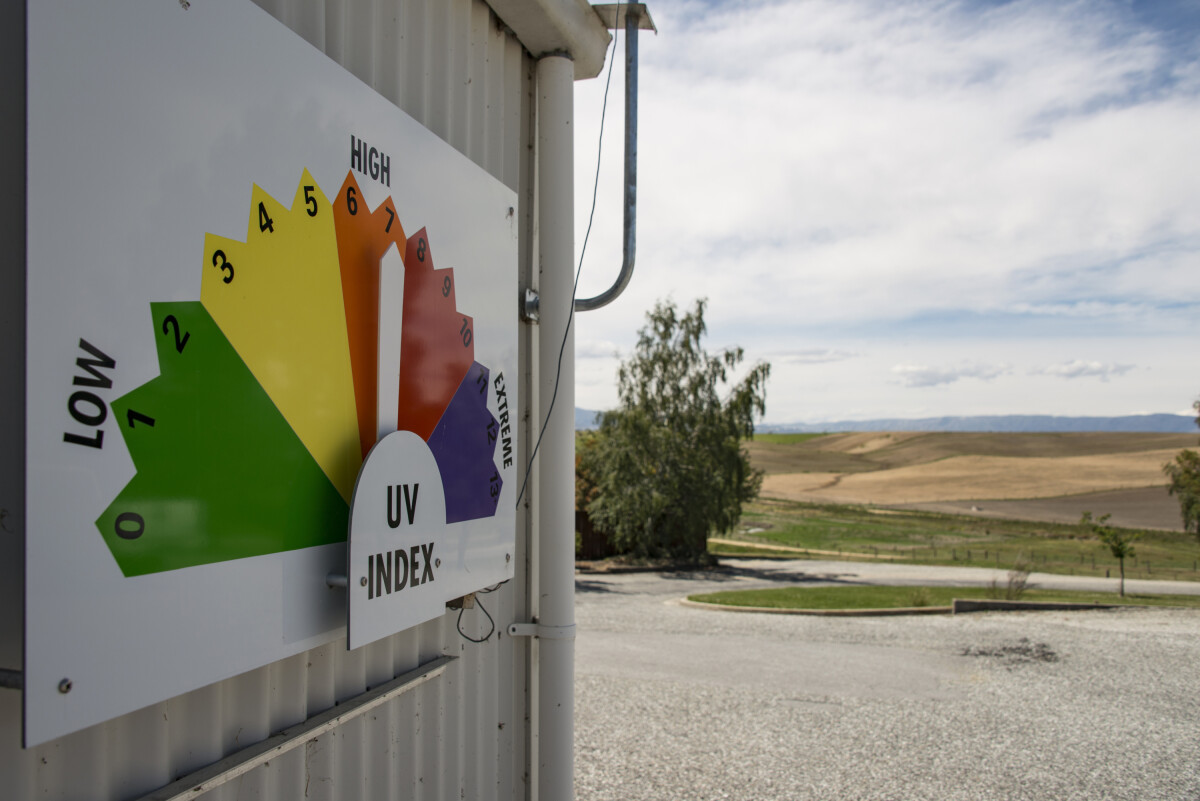New Zealanders are likely to spend considerable time outdoors this summer, with the National Institute of Water and Atmospheric Research (NIWA) predicting warm and dry conditions across most of the motu.
SunSmart behaviours are as important as ever to keep us safe, as too much exposure to the sun’s UVR (Ultraviolet radiation) can damage our health by causing sunburn, premature ageing, and increasing the risk of skin cancer.
Aotearoa New Zealand is consistently ranked alongside Australia with the highest skin cancer rates in the world, with more than 90,000 skin cancers diagnosed here every year.
NIWA meteorologist Dr Richard Turner says that currently, UVR – for the same day of the year - is tracking at or below the levels of recent years but is still very high and will increase further yet to extreme UVR levels (i.e. a UV Index of 11 and above).
“UVR levels are generally high in our summer months when the sun is high in the sky and fine days are more frequent.
“People are also often concerned about the ozone hole contributing to high UVR exposure and we do see impacts associated with that as stratospheric (i.e., high in atmosphere) blobs of depleted ozone cross the country. These blobs are caused by the later summer breakdown of the ozone hole.
“The good news is that this year’s ozone hole was the 7th smallest since 1992. The bad news is that it will be several decades before the ozone hole fills in completely, so New Zealand summer UVR levels and associated risks will remain high this year, and for years to come,” said Dr Turner.
Even when the ozone hole has completely recovered (forecast to be between 2065 and 2080) summer UVR levels here will still be extreme, but a little less so.
According to NIWA, typical peak midday values of UV Index in summer in Auckland (and northern regions) are around 12-13, and in winter these drop to around 3. In Christchurch (and southern regions) they peak around 11-12 and are under 2 in winter.
Research shows that it can depend on the individual’s skin type, but generally, if the UV Index is any higher than 3, it’s important to cover up to avoid skin damage and an established risk of skin cancer. Bad sunburn is the consequence of exposure to a high UV Index.
This summer, the outlook is for drier and warmer conditions for most of the country, except for eastern regions like Canterbury and Hawkes Bay, where near normal rainfall but still warmer than normal conditions are expected.
Cancer Society of New Zealand Researcher Dr Bronwen McNoe agrees that it’s vital for New Zealanders to continue to be cautious outdoors this summer as they take advantage of the good weather, and that simple SunSmart behaviours can protect you from the harmful effects of UVR from the sun.
“You can protect yourself by being SunSmart and remembering to Slip, Slop, Slap, and Wrap.
“This means slipping on clothes to cover as much skin as possible; slipping into shade, especially during the middle of the day; slopping on sunscreen of at least SPF 30 every two hours; slapping on a wide-brimmed hat; and wrapping on close-fitting, sun-protective sunglasses,” said Dr McNoe.
You can also access daily UVR level forecasts by downloading apps including the UVNZ app, NIWAWeather and the Metservice app. Early detection is also key to avoiding skin cancer, which means regularly checking your skin for any new moles, spots or changes, and seeing your doctor if you notice anything unusual.
The message from the experts this summer remains “Cover up! Slip, Slop, Slap and Wrap!”
For more information, tips and resources on being SunSmart, visit www.sunsmart.org.nz
To arrange an interview with Dr Richard Turner from NIWA or Dr Bronwen McNoe at the Cancer Society of New Zealand, please contact:
Maria De Cort | Senior Communications Advisor | Cancer Society of New Zealand maria@cancer.org.nz | 021 991 952
Jessica Rowley | Senior Media Advisor | National Institute of Water & Atmospheric Research Ltd (NIWA)
Jessica.Rowley@niwa.co.nz | 04 386 0338
About the Cancer Society of New Zealand
The Cancer Society of New Zealand is the country's leading organisation dedicated to reducing the incidence of cancer and ensuring the best cancer care for New Zealanders. We are committed to working with communities and decision makers by providing leadership and advocacy in cancer control, with core services in information and support, research and cancer prevention.
Follow us online:
cancer.org.nz
facebook.com/cancersocietyNZ
instagram.com/cancersocietynewzealand
www.linkedin.com/company/cancer-society-nz

